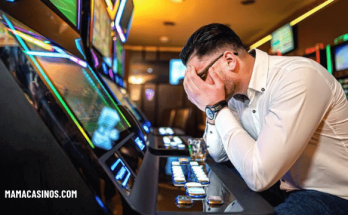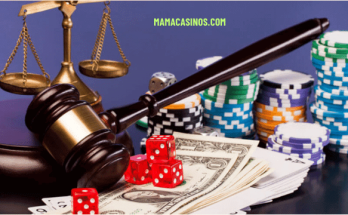Although most gamblers are anxious to find a way to pay off gambling debt, doing so will be ineffective until the issue of problem gambling has been overcome. This is because that person is firmly in the grip of an uncontrollable addiction. Once help has been received from Gamblers Anonymous (GA) or Gamcare, the time is now right to take steps to eliminate gambling debt. There are several effective ways to achieve this objective without going bankrupt.
The Enterprise Act and Going Bankrupt in the UK
Under current UK law, it is important to avoid bankruptcy as a way of eliminating gambling debt. This is because the Enterprise Act 2002 classifies this as a bankruptcy offence. At the discretion of the Official Receiver, the filer can be held accountable and not discharged for a period of up to 15 years.
Pay off Gambling Debt with a Debt Consolidation Loan
A loan for debt consolidation allows the debtor to put all of their credit together and make a single repayment each month. It is possible to repay gambling debt over an extended term at a vastly more affordable rate. Whether a secured or unsecured loan is the most appropriate option will depend heavily upon the applicant’s personal credit history.
Although there are bad credit debt consolidation loans still available, people with past credit indiscretions will find that the cost of borrowing will be a lot higher. Unsecured loans aren’t advisable because the interest rate will be usury. Secured loans are a possibility for homeowners, but aren’t advised due to the risk of default and subsequent repossession.
Eliminate Gambling Debt with an IVA
According to Top Online Casino Malaysia official website, an Individual Voluntary Arrangement (IVA) is the leading alternative to bankruptcy in the UK. It is a legally binding agreement with creditors where the debtor agrees to repay a minimum of 25% of the money they owe. An IVA must be agreed by 75% of creditors in terms of the amount they owe. Once in place, it is illegal for a creditor to approach the insolvent for the purpose of debt recovery.
Although the insolvent will need to provide a statement that explains why the debts have accrued, an Insolvency Practitioner (IP) won’t delve too deeply into the explanation. Provided that the repayment schedule is maintained, this debt free solution will eliminate gambling debt in just 60 months.
Pay off Gambling Debt with a Debt Management Plan
A debt management plan can be pursued to avoid Official Receiver questions about debt from gambling. After a series of negotiations with creditors have taken place, an affordable repayment will be made and this will be distributed to creditors on the basis of how much each one is owed. Creditor contact will cease and a personal account manager will deal with all creditor inquiries.
Although a purely voluntary agreement, creditors may also be prepared to freeze further interest and charges. For this reason, paying off gambling debt can be achieved more quickly. Despite the fact that a debt management plan is best suited for dealing with smaller debts, it offers a way to eliminate gambling debt at an affordable rate. Income and expenditure will now balance, making it possible to move on with life.
Eliminating Gambling Debt with a Loan or Debt Free Solution
Once the gambling addiction is under control, seek professional debt advice from a recognised debt charity as going bankrupt is an ineffective way to write off gambling debt. It may be the case that a loan for debt consolidation provides the answer, but it probably isn’t the way to go for people who have a history of bad credit. As a general rule, it is usually better to tackle small debts with a debt management plan and serious debt problems of over £15,000 with an Individual Voluntary Arrangement (IVA).
When is Bankruptcy the Right Debt Solution
In order to declare personal bankruptcy it is necessary to pay a court fee of £150 and administrative costs of £325. Although most people become discharged bankrupts after 12 months, the entry stays on personal credit reports for 6 years.
The Insolvency Service published data showing that there were 35,682 personal insolvencies in the first quarter of 2010. This is the second highest figure recorded by the Ministry of Justice since it started collecting data in 1995.
When declaring personal bankruptcy, an Official Receiver is appointed to perform an analysis of a debtor’s financial position. If the Official Receiver finds that the debtor was responsible for their current financial status they can be held accountable under a Bankruptcy Restriction Order (BRO).
Personal Bankruptcy Following an Involvement in Speculative Activities
Bankruptcy laws have changed following the passing of the Enterprise Act 2002. Whilst many people who have spent wildly will become discharged bankrupts after 12 months, those involved in speculation will be held accountable under a BRO for between 2 and 15 years.
It is not uncommon for people who have spent all their money on shopping and holidays to be discharged after 12 months. However, those involved in gambling or speculative trading are regular victims of BROs. This can be very unfair given that many problem gamblers are suffering from a form of sickness. This has led many people look for an alternative way to pay off gambling debts.
The Family Home Will Form Part of the Bankruptcy Assets
The Official Receiver will seek to realize funds from the sale of a property. Any equity remaining from the sale of the property will be distributed to creditors. The court will seek to achieve this through one of 3 methods:
- Asking friends and family to raise the required funds to buy the bankrupt’s share of the home.
- Asking the bankrupt to sell the property on the open market.
- Repossession and sale.
It will rarely be possible to keep the family home, other than in exceptional circumstances, so a private rental arrangement will need to be identified. It can be difficult finding a property via professional letting companies as they perform credit checks. Renting directly from private landlords is advised.
The Loss of Employment Status
The majority of jobs won’t be affected by personal bankruptcy. It won’t be possible to continue working as a: solicitor, accountant, company director, insolvency practitioner, police officer and certain other cash-handling and local authority roles.
It is advisable for those involved in the areas above to consider an alternative debt solution, such as an Individual Voluntary Arrangement or debt management plan. Losing professional status, the family home or being accountable under a BRO are a heavy price to pay for personal bankruptcy.




